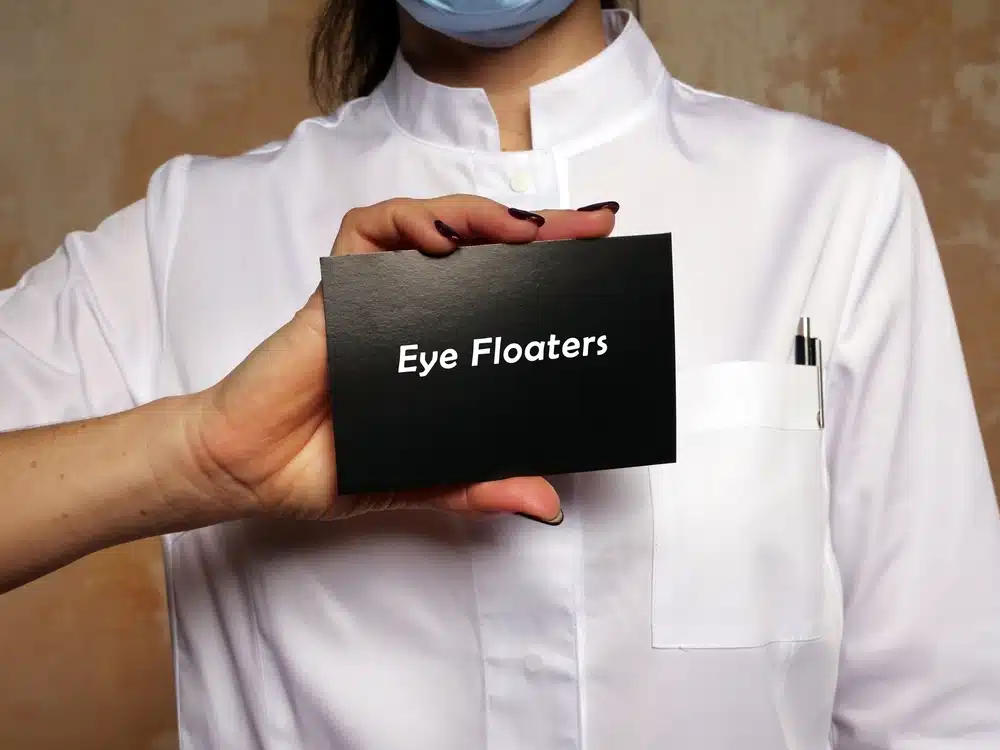Eye floaters are small dark spots appearing in your vision as uneven lines. These spots may stand out when looking at bright objects. Floaters will drift in the same direction your eyes move, and when stared at them directly, they will drift away. Let’s explore in more detail just what eye floaters are.
Symptoms
Here are some symptoms to note about eye floaters:
- The floaters appear in different shapes, such as grey dots, squiggly lines, and cobwebs.
- Floaters will move in the same direction as your eyes.
- Will become more prominent when looking at bright objects.
- They will move away when stared at directly.
- They will not disappear; however, they will become less noticeable over time.
The Causes of Floaters
The cause of most floaters is in relation to age. As you age, the vitreous, generally in a jello-like state, will become more fluid. As this occurs, the microscopic fibres in the vitreous (known as collagen) will join together. This will cast a shadow in your vision, also known as a floater.
It should be noted eye changes can happen at any age. Furthermore, there is an increased likelihood for you to develop eye floaters if you are nearsighted or have had cataract surgery. Additional factors that can increase the probability of eye floaters are eye tumours, a torn or detached retina, inflammation in the eyes, bleeding in the vitreous, and/or diabetic retinopathy.
When to See an Eye Doctor
If the following symptoms are detected when experiencing floaters, you should contact your eye doctor immediately:
- When there is a noticeable increase, change, or worsening presence of floaters.
- Seeing flashes of light where floaters are visible.
- The loss of peripheral vision, which is when there is darkness on the side(s) of your eye(s).
- Pain within the eyes.
- Seeing floaters after eye surgery or injury.
Treatment
The treatment of eye floaters will be dependent on the cause. If the floaters have entered the field of vision due to age, treatment may not be required. If there is a large quantity of floaters present when it comes to your vision and day-to-day activity, doctors may recommend surgery called vitrectomy to aid in the removal of them. Finally, if an underlying condition causes the floaters, treatment for the condition may be needed.
As the eyes age and muscles weaken, understanding possible conditions that may appear, such as eye floaters, is important to us. At Laurier Optical, with the help of our eyecare specialists, we can help you safeguard your vision. To learn more, contact us today.
Article has been reviewed by an Optometrist.
